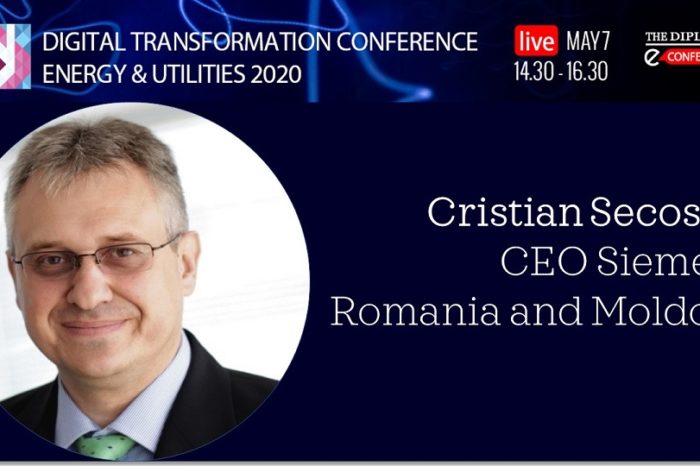Joe Kaeser, President and CEO of Siemens AG: Five actions for a stronger Europe

Europe has so much to offer: diverse cultures, excellent educational systems, a highly skilled workforce, leading research institutes, a strong industrial base, democratic political stability for the most part, reliable law enforcement and the world’s largest single market. Yet, reaching agreements can often be a tedious and time-consuming process in Brussels, if it happens at all. Too often, we Europeans have lost valuable time in this process. And that has been a disadvantage for European companies and, subsequently, the economies of member states – a disadvantage we can and should no longer afford in the competition with leading economies. The new legislative term and a new leadership are an opportunity for Europe and its policymakers to change that – an opportunity to stand up for multilateralism and reciprocity and to do so with one voice. In order to achieve this in a global manner, we need to build bridges and not hunt witches. Reliable partnerships evolve based on trust, inclusion and win-win scenarios rather than nationalism and protectionism.
There is a lot to do, but I believe five actions are urgently needed to make Europe stronger and to prevent it from further falling behind in a very active global economic and political environment.
- Turn the fight against climate change into an industrial opportunity
No doubt, climate change is the biggest challenge humanity faces. It is good to see that the “next generation” understands this to be a matter at heart for them. While a sense of urgency and the right diagnostic is an important starting point, the right therapy and subsequent prevention will change matters for the better in our complicated ecosystem. So, why not see it as an opportunity for Europe’s industry to be the global leader in environmental technologies? We need these technologies to meet our own climate targets. Renewable sources of energy must be integrated in the economy as a whole – not just in the area of mobility, but also in buildings and industry. One of the he best way to do that is through Power-to-X technologies. They facilitate a smooth transition to renewable sources of energy in all sectors. To achieve a substantial reduction in CO2 emissions, the Power-to-X capacity must amount to 15 gigawatts by 2024.
If we really want to achieve EU climate neutrality by 2050, it takes more than debating about how many flights we ought to cancel or what the percentage of e-cars ought to be at a certain time. We must unlock the full potential of sectoral integration, since we live in a connected global ecosystem. All sectors must work together closely to develop solutions that make sense economically and improve competitiveness. This means that regulations and state aid must match our goal of becoming carbon neutral.
Over the last five years, Europe has been focusing on “energy efficiency first.” I say we go one step further and focus on “system efficiency first.” Taking the lead in environmental technologies is a huge opportunity for Europe. Not to mention that a convincing climate policy will also increase Europe’s credibility in the world, especially among the young generation, whom we owe a good future.
- Speak with one, strong voice
Many nations have an “Economic development plan.” For example, China has “Made in China 2025,” India has “Make in India” and Saudi Arabia is pursuing “Vision 2030”. And the United States is taking action, too. All these countries and many more have national economic strategies in place. And Europe? It plays defensively, if at all. We need a plan for Europe and start speaking with one, strong voice. Then other economies will be more likely to agree to a level playing field and to reciprocal trade deals. All EU member states will benefit from that. That’s why I call for setting up a one-stop shop that coordinates foreign economic diplomacy and trade policy by the end of 2020. This “shop” would be run by the European Commission and the External Action Service and would install a European foreign trade policy that supports European companies in their export efforts.
Why not try a new approach? Together, we are powerful. And yes, we can assert our interests. So, why not pursue a value-based economic diplomacy that effectively provides EU support for those projects of European companies that significantly contribute to meeting the UN Sustainable Development Goals (SDGs).
- Invest in future technologies
Today, innovative power determines the well-being of societies, and it creates and secures jobs and even leadership in geopolitics and geo-economics. If we Europeans want to be able to compete internationally, we must invest much more in new technologies – and do so in a much more strategic way. Holding on to and even funding sectors of yesterdays’ future may save a few votes for now, but not the future of Europe and its people.
Europe currently lags far behind in the area of Artificial Intelligence (AI) compared to the U.S. and China; both are investing significantly more. The same applies to the deployment of AI – less than ten percent of German industrial companies use AI in business operations. This is alarming. Clearly, the private sector must invest much more into AI. The target should be €15 billion by 2024 – that’s an increase of 30 to 40 percent per year.
- Modernize the regulatory framework
It is safe to say that Europe is one of the most attractive markets in the world. But that is unfortunately only half the truth. If we look at the regulatory framework, the downsides quickly become apparent. Several sectors have been falling behind and others are in danger of losing sight in international comparison. European companies are in competition with non-European companies that receive considerable and in parts decisive support from their states, particularly the U.S. and China. This is where we need to act. We need to modernize the competition rules – as quickly as possible. And this should not be driven by more blocking but by creating level playing fields for fair and open trade based on transparency and common rules, such as Environmental Health and Safety Management Systems, among others.
Modernization is also necessary because digitalization is changing entire business models. It’s about data-based platforms and their logic and impact on research and development. We have no shortage of excellent research, but we find it difficult to try out and implement. This requires decisive action from politics, business and society. We need more experimental space and the courage to try things out. Sandboxing, for example, can be an extremely valuable tool for temporarily exempting new applications from existing regulations. Cutting red regulatory tape must therefore become a strong focus of the new EU commission. My call is therefore: Let us create a modernized framework for EU competition law by 2022 – a framework that takes all these points into account. And let us implement it across Europe by 2024 at the latest.
- Prepare citizens for the digital world
Digital skills are vital for Europe’s future. However, as good as our educational systems are, the notion that learning must be lifelong hasn’t really been addressed yet, and certainly not on a broad scale. On top of that, academic degrees and vocational training certificates cannot always be transferred from one EU member state to another. Another self-imposed obstacle no one needs. Instead, European member states should jointly develop a master plan for academic education and vocational training that meets future demand for skills, especially in the fields of science, technology, engineering and math (STEM). And we should see to it that our educational systems uphold common standards so that academic achievements and training certificates are recognized throughout Europe. Finally, we should increase collaboration between the private and public sectors. Here’s the target: Let’s aim for making sure that 50 percent of Europe’s industrial workforce has a good understanding of AI applications as well as advanced digital skills.
















